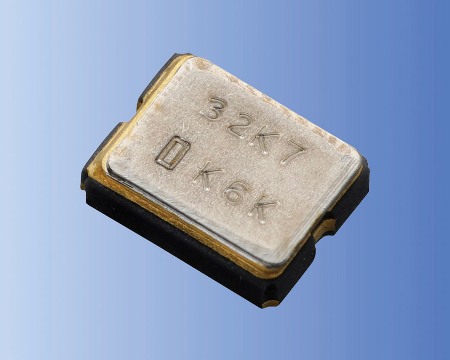Kyocera Corporation announced that its wholly owned subsidiary in charge of developing and manufacturing crystal devices, Kyocera Crystal Device Corporation, has succeeded in developing an AT-cut crystal oscillator (KC2520M) with an output frequency of 32kHz, which has the world's first low current consumption of 80μA. A crystal device for use in electric vehicles and smart meters, the mounting area has also been reduced by approximately 40% compared to conventional products (3225-size) available in the market.

Development Background
The 32kHz crystal device is an electronic component that is installed for use as a clock function in various general electronic devices. In recent years, its range of use has expanded to automobiles and smart meters among other applications. Since high reliability is required, especially for in-vehicle use, the AT-cut crystal oscillator with its high accuracy and high strength can be used stably in a wide temperature range.
The typical current consumption of conventional products is several mA (1mA=1,000μA). However, for crystal oscillators used in electric and hybrid-electric vehicles – for which demand has recently been rapidly growing – the need to further reduce the current consumption in order to save battery life is rapidly increasing, in addition to the needs for downsizing, higher strength and higher accuracy.
On the basis of these needs, Kyocera Crystal Device has worked on developing a 32kHz AT-cut crystal oscillator and has commercialized its new crystal oscillator KC2520M (32kHz), which achieves a low current consumption of 80μA for the first time in the world, at the smaller size of 2.5 × 2.0mm.
Specifications
|
External dimensions
|
2.5 × 2.0 × 0.7mm typ.
|
|
Output frequency
|
32.768kHz
|
|
Operating temperature range
|
–40 to 125 degrees Celsius
|
|
Frequency-temperature characteristics
|
±80 × 10–6
|
|
Frequency deviation vs. load
|
±4 × 10–6
|
|
Frequency deviation vs. supply voltage
|
±0.5 × 10–6 (Vcc±10%)
|
|
Supply voltage
|
1.6 to 5.5V
|
|
Output voltage
|
MIN 90%Vcc
|
|
Current consumption
|
Typ. 80μA
|
